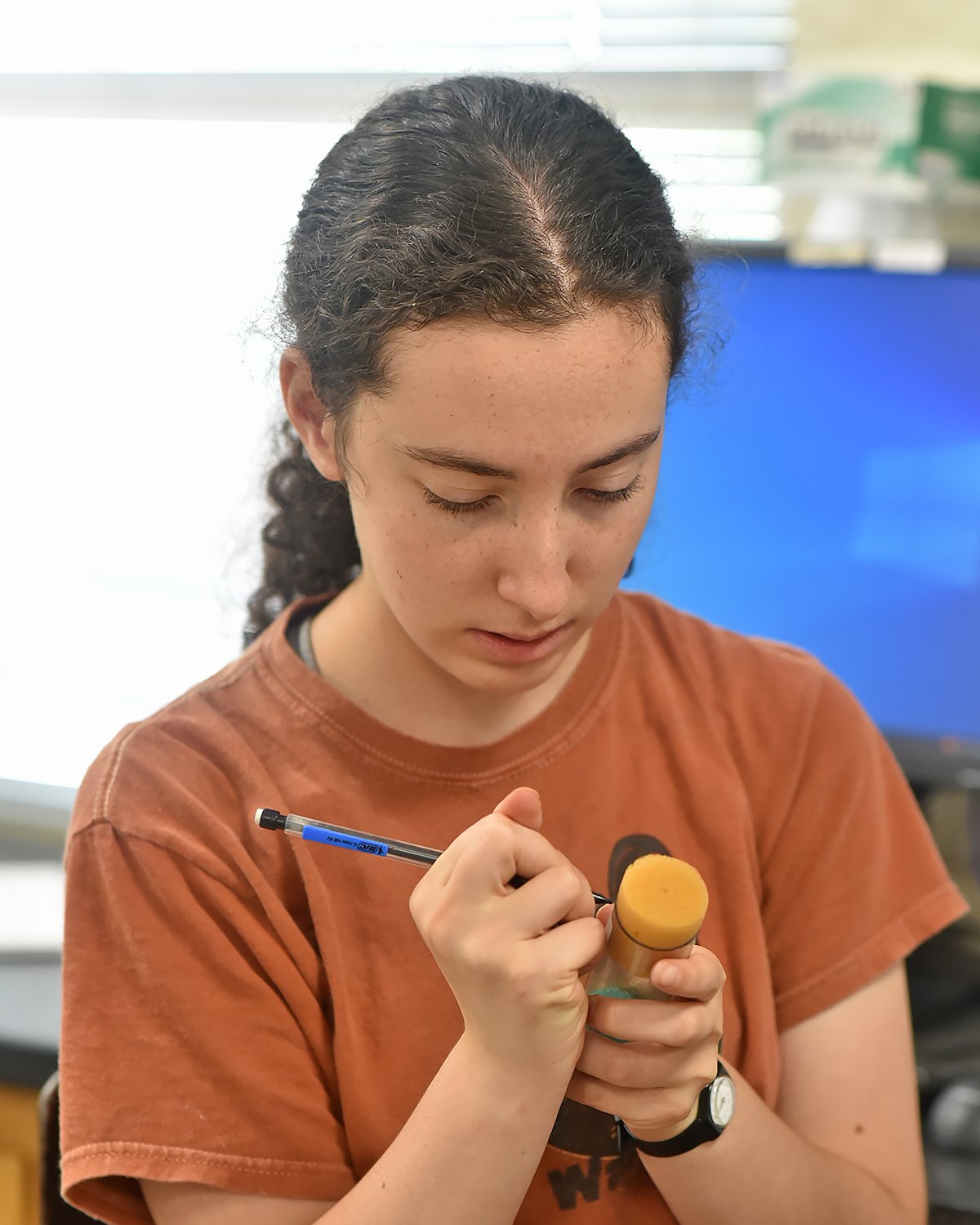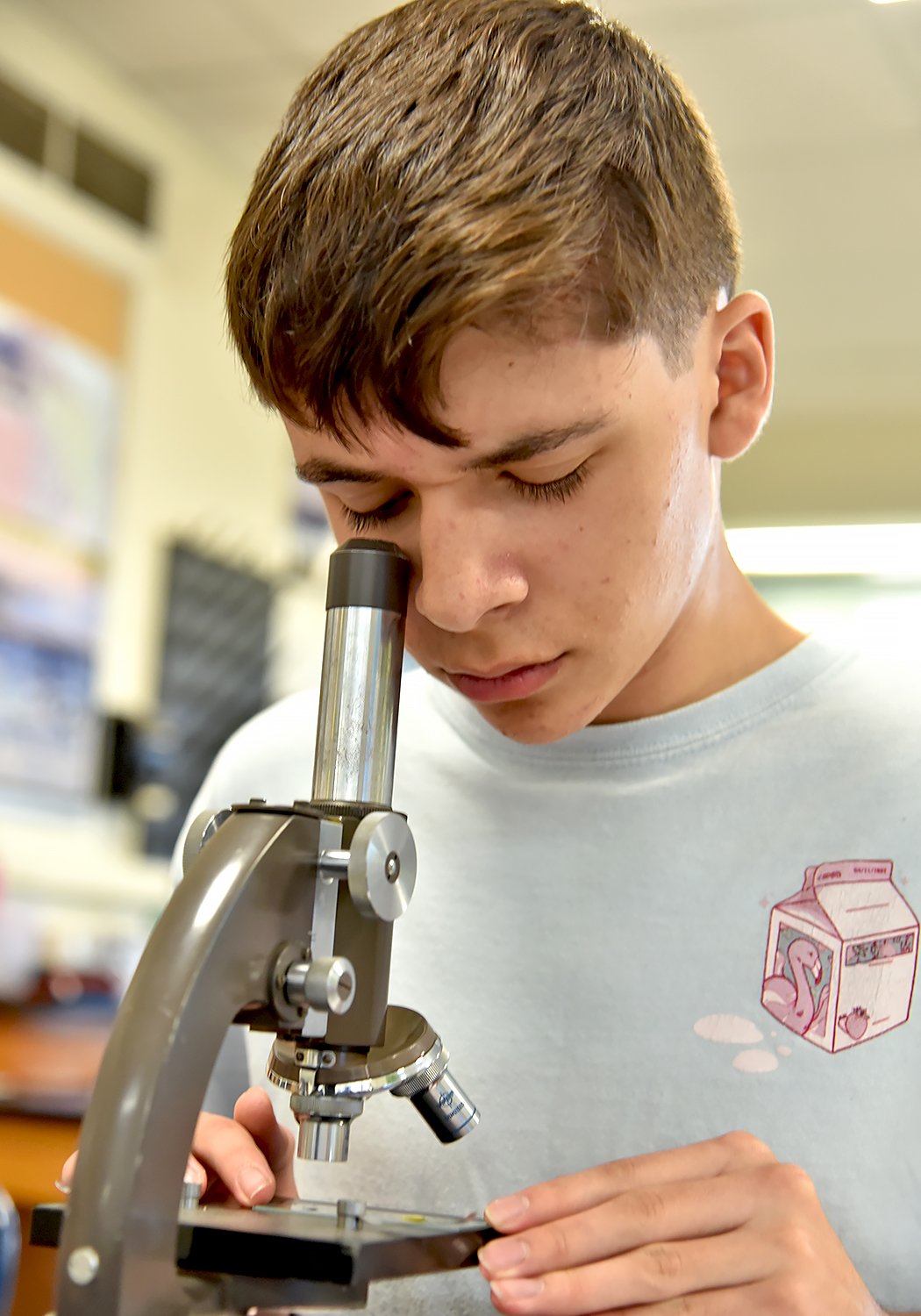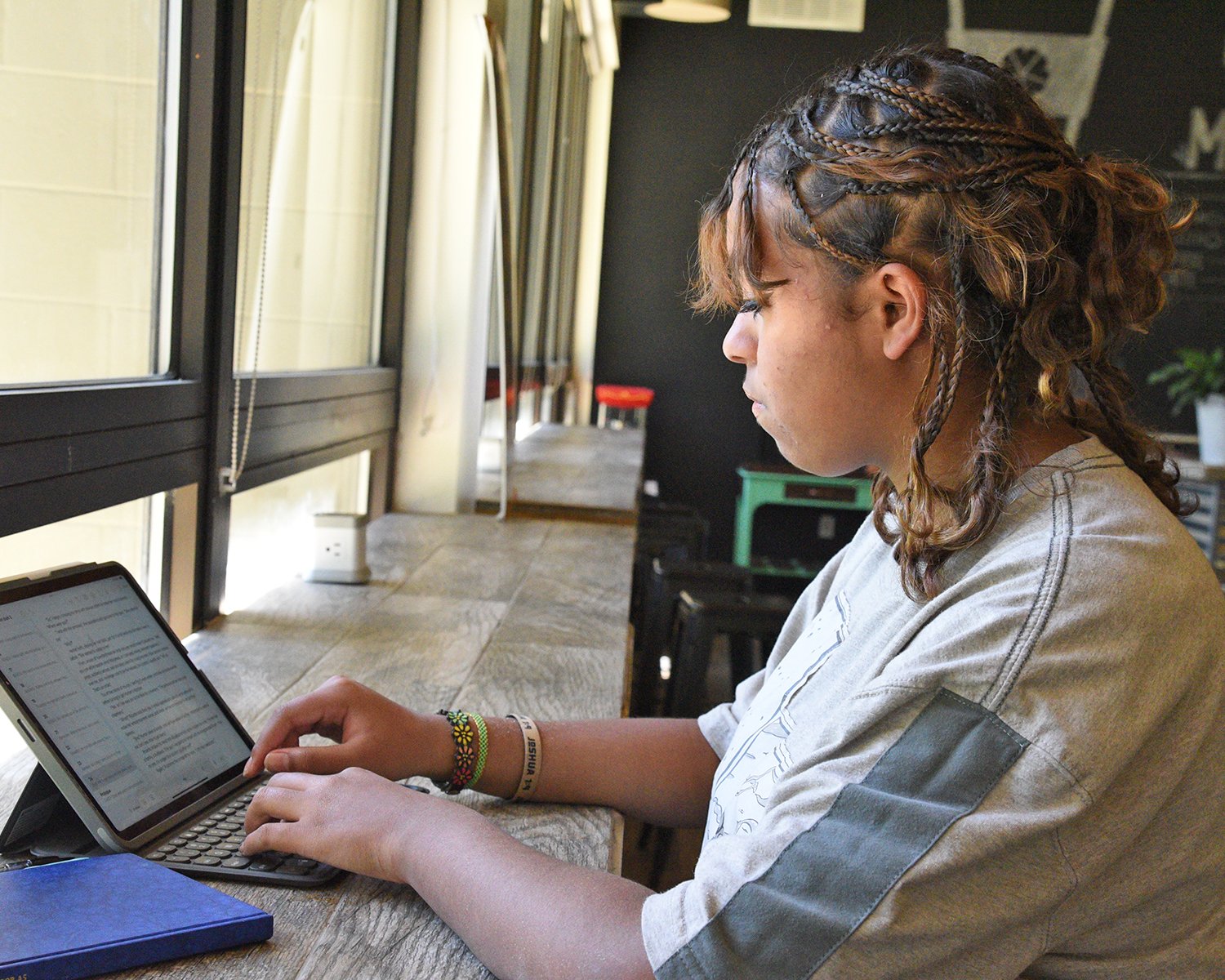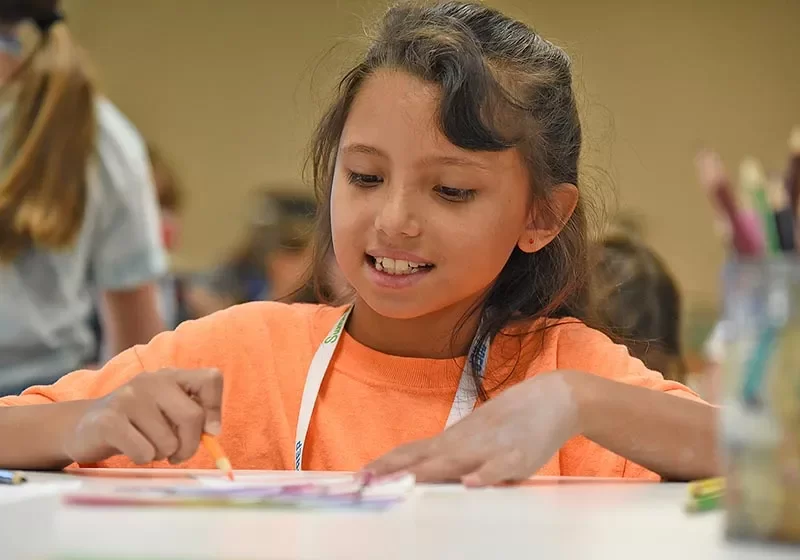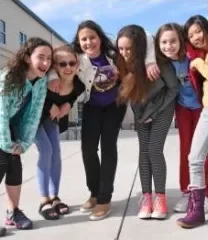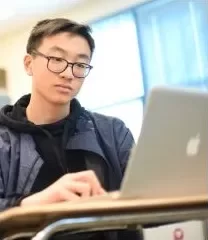Empowering Students to Advocate for Themselves
February 12th, 2024
Hello Sandia Prep Community,
Happy February! It is hard to believe we are already almost halfway through this shortest month of the year. I’m finding time goes by so quickly these days. I suppose it makes sense that as we age, time moves more quickly. When you are a toddler, a year is a good portion of your life lived so far, but each year we age, one year is a smaller fraction of our overall life experience.
I hope you had a wonderful winter break (it now seems quite far away!) and had the chance to spend time with your family and friends. I was just talking with some friends about how much we are enjoying our children as they become adults. This is not to say that I didn’t enjoy them before, of course! But I noticed over the break that my kids also seem to enjoy spending time with my husband and me more than they did when they were teenagers.
For instance, my mom gave me a jigsaw puzzle for Christmas, and a couple of days later, I sat down to work on it, assuming it would be a solitary activity. But my son gradually joined me, and over the next couple of days, we enjoyed each other’s company while also working on the puzzle. And the best part was once we completed it, he suggested we go buy another one. The other example is about hiking - my kids grew up in Colorado, where, like New Mexico, there are abundant hiking trails and places to enjoy natural beauty. When they were little, they were usually fairly game for hiking and camping, but as they grew older and became involved with other activities and friendships, their interest in going on a hike with their mom dwindled. But during the break, not only did they want to go on some hikes, they actually suggested it! I talk a lot about the value of small moments, and these small moments during the vacation meant a great deal to me because they were both opportunities to make my relationship with my kids even stronger.
Speaking of relationships, you’ve probably heard me say at least once that we at Sandia Prep believe that relationships are at the core of an extraordinary education. When our students develop strong relationships with their teachers, and with their peers, they are more able to excel at school. When they feel connected and known, they are willing to take risks, and this leads to developing grit, resilience, and joy in learning. And when kids feel supported and believed in by their parents, the possibilities expand even more.
We recently had a parent coffee at school, at which we discussed the book How to Raise an Adult, by Julie Lythcott-Haims. The author used to be a freshman dean at Stanford, and during her time there, she noticed that while her students were, on paper, exceptional, they often lacked basic skills, like using a map, mailing a package, or asking for help. She was at dinner with her family lamenting this fact, when she found herself cutting her 12-year-old son’s steak. She stopped herself and realized that she was setting her son up to be just like these students. So, she set out to do some research on how parents can best support their children and help them develop the important skills they need to leave the comfortable nest of home.
The result was the book I mentioned, and she has since given several talks and written more books. I had the pleasure of meeting Julie back in 2017 when she came to speak at the school where I worked, and I have found her insights to be incredibly helpful both as a parent and as an educator. I highly recommend her first book, no matter where you are in your parenting journey (and perhaps even if you aren’t a parent, so you can better understand adolescents and young adults you may come across). But if you don’t have time to read the book (and I know time is always at a premium), I found this quick primer, which includes some links to a Ted Talk and a video, to be very helpful.
In the linked article, Lythcott-Haims provides four parenting tips. She calls it her “‘Four… Three… Two… One…Go!’ Method,” and she works down from four. Because you can read the article yourself, I won’t go into too much detail here, but I’ll give you some highlights.
First, she goes over the four steps for teaching your child a new skill, moving from doing it for them through various stages until they can do it themselves. Essentially, you are leading them through the four stages of competence, a learning model that describes the psychological states we go through when learning a new skill. Lythcott-Haims created this great animated video that goes over the steps.
Next, she addresses three things parents should stop doing now. Essentially, they all have to do with being overly involved and rescuing our kids when we should instead be encouraging them to advocate for themselves.
After that, she reveals the two things that matter most in parenting: chores and love. When our children are involved in keeping up the household (through skills we taught them using the aforementioned four steps!), they learn the value of pitching in to contribute to the larger community. This work ethic will serve them well both at school and the workplace. Interestingly, the longest study of humans ever conducted (the Harvard Study of Adult Development) shows that those who were professionally successful in life did chores as a kid (or had a part-time job in high school).
Interestingly, I’ve been talking about this study quite a bit lately because the other thing it discovered is that the number one cause of happiness and long life (truly, I mean living longer than others) is positive relationships. It truly is all about relationships.
Now, love seems pretty obvious as the most important thing for parenting, but we need to be sure we are providing unconditional love. Unfortunately, without meaning to, we often show our kids conditional love (we love them when they’re getting the results we’re proud of), or at least that’s how it is perceived. But when we can show our kids that we love them no matter what (and by the way, this doesn’t mean not setting limits or letting them rule the roost!), we instill a confidence in them that will help them throughout their lives.
And finally, Lythcott-Haims introduces a one-week cleanse to get your relationship on track with your child. It involves having a conversation with our children, reinforcing their agency, and vowing not to ask/nag about anything for a full week. Again, the idea is that when we focus too much on results, we give our kids the idea that they are commodities, not humans. And they then believe that our love for them is conditional on these results.
Also, when we step in to solve their problems for them, we may think we are showing love, but that’s not actually the message we’re giving. Let me give you a scenario, and we’ll consider two possible ways it could play out. Let’s say your child comes home from school and complains to you about a rough day. Maybe they felt like a classmate was unkind, or maybe they thought their teacher gave too much homework or didn’t explain the parameters of the assignment well enough. Whatever the problem, our immediate instinct is to get on the phone or to dash off a quick email, trying to solve the problem for our kid. This will show our kids that we love them, right?
Wrong. What we actually show our kids is that we don’t believe they can solve their own problems; that they are helpless without us, their parental saviors, swooping in to rescue them. Let’s consider another scenario. What if, when our kids come home and complain about something, we instead say, “Hmmmm. Hmmmmm. Hmmmm.” And once we’ve really listened, we then say, “Wow, that sounds hard,” and then continue to ask open-ended questions and provide supportive words. Interestingly, when we give our students space to process their problems, they often begin to come up with solutions on their own, even at very young ages. We absolutely need to be there for them and to provide the scaffolding to help them solve their problems, but we aren’t helping them when we solve their problems for them.
We need to empower our kids to try things on their own. To make mistakes and realize that they can always try again. To advocate for themselves when things are tough. When school and family partner together to do this, we can help our students develop into strong, independent adults who are ready; no, not just ready; eager to take on the challenges of the world and to have a lasting impact on that world.







